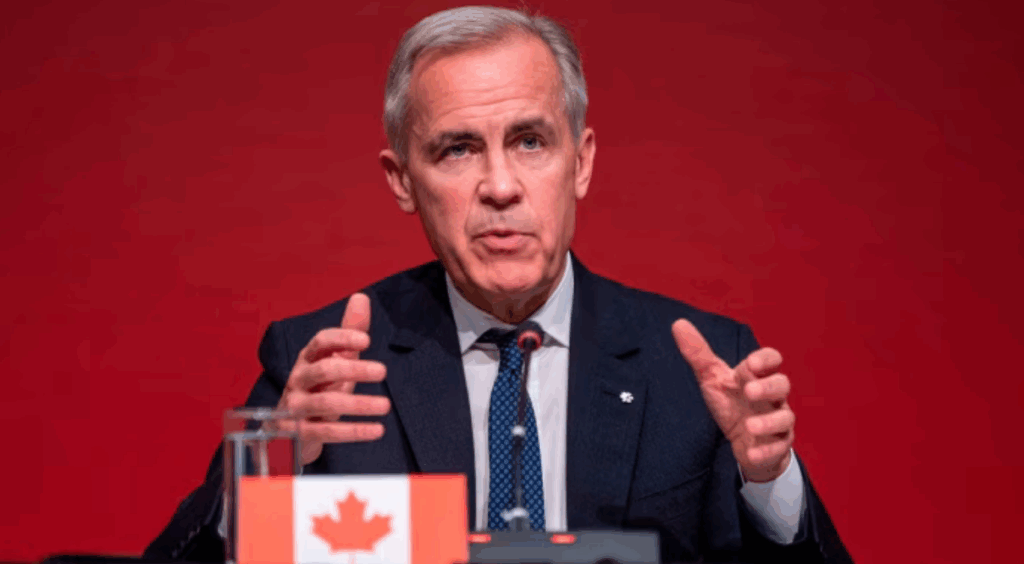SASKATOON (Realist English). Prime Minister Mark Carney has promised to work closely with Canada’s oil industry to increase production and reduce emissions, signalling a strategic shift in energy policy as Ottawa prepares to confront trade pressures from the United States under Donald Trump.
In recent meetings with senior oil executives, Carney offered conditional support for new pipeline infrastructure and a multibillion-dollar carbon capture initiative tied to Alberta’s oil sands, calling it a potential “grand bargain” — boosting exports while lowering emissions.
“There’s real potential here,” Carney said Monday during a visit to Saskatoon, Saskatchewan. “We can build big, build bold, build one Canadian economy — and build now.”
The move marks a significant change in tone from Carney, who once warned of the risks of fossil fuel investment as Governor of the Bank of England, and later championed global decarbonisation through the Glasgow Financial Alliance for Net Zero, which mobilised $130tn in private capital.
Now leading a government focused on weathering a looming trade war with Washington, Carney is seeking to reposition Canada as an energy superpower, while keeping environmental concerns at the forefront. Canada remains the largest oil exporter to the U.S., but Trump-era rhetoric — including remarks suggesting Canada should become the “51st state” — has fuelled uncertainty over market access.
To counter this, Carney has vowed to fast-track project approvals and open new markets in Europe and Asia. Over C$26bn ($18.9bn) in oil projects are currently under construction, with more than C$100bn in development or awaiting investment decisions, according to the Canadian Association of Petroleum Producers (CAPP).
As part of that strategy, Carney met with western energy leaders over the weekend to revive ties with regions long at odds with Ottawa’s regulatory approach. His message appears to be resonating:
Lisa Baiton, head of CAPP, welcomed the new tone, and said the sector was “very encouraged” by the appointment of Energy Minister Tim Hodgson, a former executive at Goldman Sachs and MEG Energy.
One of the key initiatives under discussion is the Pathways Alliance — a proposed C$20bn carbon capture system in Alberta that would mitigate the high emissions associated with oil sands production. Alberta Premier Danielle Smith has linked federal backing for the project with approval for a new pipeline to the British Columbia coast, which she says could generate up to C$20bn in annual revenues.
“Decarbonised Canadian oil and gas must reach global markets,” Carney said, reaffirming his support for emissions-neutral exports.
Not all voices in the industry are fully convinced. Adam Waterous, chairman of Strathcona Resources, said Carney’s government “has got it half right,” praising subsidies for carbon capture but criticising legal restrictions on cross-country pipelines.
François Poirier, CEO of pipeline giant TC Energy, struck a cautious note: “The prime minister has shown early pragmatism — but the economics of new pipelines remain difficult.”
Carney’s evolving stance highlights a broader trend in North American energy politics: climate policy is no longer seen as incompatible with industrial strategy. Whether Canada can thread this needle — expanding production while curbing emissions — will shape not only its economic future, but its geopolitical leverage in a world of fragmented energy trade.
